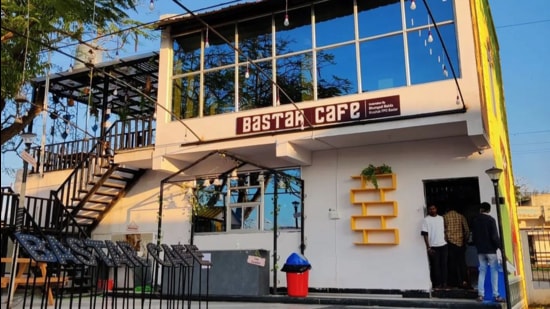Till date, coffee is grown in only one revenue block of Bastar district but the Chhattisgarh government is now planning to expand coffee cultivation to other districts of Bastar region, which include seven Maoist-affected districts of Chhattisgarh.

The Chhattisgarh government has decided to open a ‘Bastar Café’ in New Delhi, Raipur and other metro cities and is also considering signing a memorandum of understanding (MoU) with private companies to promote the café.
The cafés will be run on a franchise model with the condition that the name ‘Bastar’ would be compulsorily included in the brand name of the coffee.
Recently, senior officials have also been directed to prepare a project to promote cultivation of coffee and tea in the plateau areas of Bastar and Sarguja division of Chhattisgarh.
“We have not yet chalked out an overall plan of the project and consultation with various departments is going on but ‘Bastar Café’ will surely turn global in future. Bastar Cafe will serve mainly coffee grown in Bastar but it will also give a complete experience of the local food of Bastar including cookies made of ragi, milk shake, mahua laddu and bar, sitafal ice cream and other Chhattisgarhi and tribal cuisine. Thousands of people are involved in growing coffee in the state. Bastar Cafe will be opened in many malls, across Chhattisgarh and also in metro cities of the country,” said Alok Shukla, chief executive officer (CEO) of Rozgar Mission, who is in-charge of the project.
“Franchises can be self-help groups as well but other private sector organisations and start-ups will also be encouraged to take franchises,” said Shukla.
Till date, coffee is grown in only one revenue block of Bastar district but the Chhattisgarh government is now planning to expand coffee cultivation to other districts of Bastar region, which include seven Maoist-affected districts of Chhattisgarh.
“Plantation of coffee is done in Bastar’s Darbha region but we are now planning to expand in Sukma and other districts. In the first phase, eight quintals of coffee have been produced, which is being utilized at the Bastar Cafe opened in Jagdalpur. Nearly two kilograms of coffee is being consumed per day at this cafe. At least three more cafes can be started for utilization and marketing of the quantity of coffee being produced. A decision has been taken to open such cafes in Raipur and Delhi as well, so as to ensure the branding of Bastar Coffee,” said an official involved in the project.
He informed that coffee has been planted in 55 acres of Darbha area of Bastar in 2021.
Presently, coffee cultivation is proposed in an area of 5,108 acres in Bastar district, which includes 1,075 acres in 9 villages of Tokapal block, 1,027 acres in 11 villages of Lohandiguda, 1,445 acres in 14 villages of Bastanar, 460 acres in 7 villages of Bakawand and 1,101 acres in 13 villages of Darbha block.
Officials said that the Agriculture College, Jagdalpur has completed preparations for coffee plantation in 245 acres of land in Darbha.
“The horticulture department is in the process of getting 2.50 quintals of certified seeds of ‘Chandragiri’ variety from Coffee Board Bangalore, which would be utilized for producing 5 lakh saplings. These saplings will be planted in an area of 500 acres area… Likewise, Agriculture College Jagdalpur will also produce two lakh saplings from a quintal of certified seeds to be received from Coffee Board Bangalore. These saplings will be planted over an area of 200 acres. A target has been set to expand the area under coffee cultivation in 1000 acres of Bastar district every year. By 2026, nearly 5,820 acres of land would be brought under coffee cultivation,” said an officer of the public relation department.
KP Singh, scientist (Horticulture), who is overseeing the ‘Coffee project’ in Bastar, said that climatic conditions of Bastar are quite suitable for coffee cultivation.
“We are encouraging more and more tribes to cultivate in this area and training is continuously going on. We are hoping that soon Bastar coffee will become a brand in the market,” Singh added.
District Collector of Bastar, Rajat Bansal, said that Bastar Café will create employment and tourism in the area.
“Bastar Café could be a big brand of coffee and we are working on it. As per the direction from the state, currently, the district administration is trying to expand coffee plantations in an area of more than 5000 acres. The future target is Tokapal, Lohandiguda, and Bastanaar revenue block of the district. The key scientific parameter which makes Bastar coffee a unique product is the content of chlorogenic acid, caffeine and protein with a percentage of 6.02, 0.53 and 11.22 respectively,” said Bansal.
In terms of crops, the district administration aims to promote coffee as a non-conventional agricultural product which will help them to shift from paddy and also generate coffee tourism in future, the collector added.
source: http://www.hindustantimes.com / Hindustan Times / Home> India News / by Ritesh Mishra / February 17th, 2022

